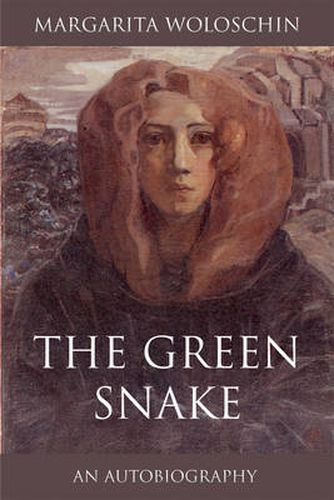Readings Newsletter
Become a Readings Member to make your shopping experience even easier.
Sign in or sign up for free!
You’re not far away from qualifying for FREE standard shipping within Australia
You’ve qualified for FREE standard shipping within Australia
The cart is loading…






Told from the perspective of the anthroposophical artist, Margarita Woloschin, this is a first-hand account of her privileged upbringing in Russia and subsequent life. Her vivid recollections of Moscow and rural Russia at the end of the nineteenth century are related in a lyrical, evocative timbre that echoes throughout the book. It records, in lavish detail, Woloschin’s meetings with the Russian intellectual elite, including Tolstoy, the impressions they made upon her, her extensive travels throughout Europe and her marriage to the journalist-poet Max Voloshin. Instrumental in the introduction of anthroposophy into Russia, Woloschin recounts the construction of the original Goetheanum in Dornach, Switzerland, in which she was involved, and its ultimate destruction. The narrative is interspersed with the artist’s personal memories and insights of Rudolf Steiner and the struggle for meaning in her own turbulent life. As the First World War spreads through Europe, she details the harsh deprivations of the Russian Revolution and its effects on her family and friends, which stand in brutal contrast to the earlier bucolic aspect of her testimony. Set against the extremes of tsarist Russia and the Bolshevik Revolution, this haunting, historical memoir is testament to a fascinating and inspirational life.
$9.00 standard shipping within Australia
FREE standard shipping within Australia for orders over $100.00
Express & International shipping calculated at checkout
Told from the perspective of the anthroposophical artist, Margarita Woloschin, this is a first-hand account of her privileged upbringing in Russia and subsequent life. Her vivid recollections of Moscow and rural Russia at the end of the nineteenth century are related in a lyrical, evocative timbre that echoes throughout the book. It records, in lavish detail, Woloschin’s meetings with the Russian intellectual elite, including Tolstoy, the impressions they made upon her, her extensive travels throughout Europe and her marriage to the journalist-poet Max Voloshin. Instrumental in the introduction of anthroposophy into Russia, Woloschin recounts the construction of the original Goetheanum in Dornach, Switzerland, in which she was involved, and its ultimate destruction. The narrative is interspersed with the artist’s personal memories and insights of Rudolf Steiner and the struggle for meaning in her own turbulent life. As the First World War spreads through Europe, she details the harsh deprivations of the Russian Revolution and its effects on her family and friends, which stand in brutal contrast to the earlier bucolic aspect of her testimony. Set against the extremes of tsarist Russia and the Bolshevik Revolution, this haunting, historical memoir is testament to a fascinating and inspirational life.